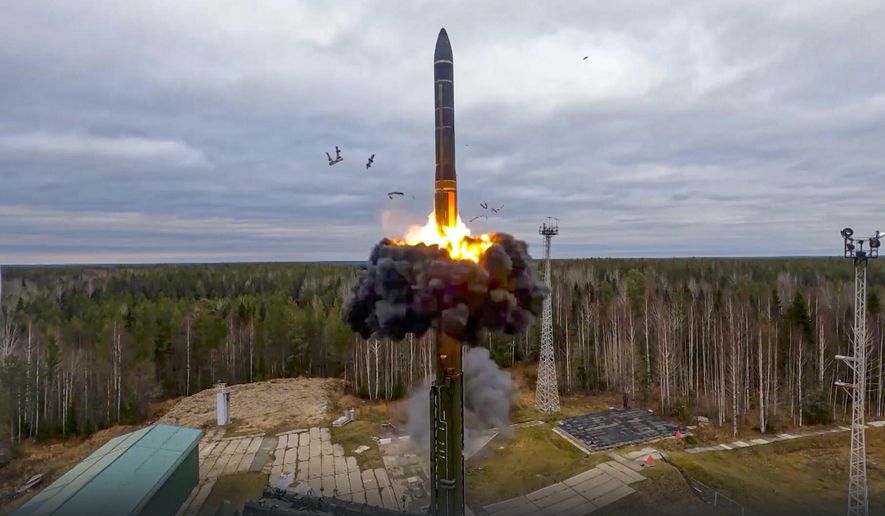An arms control advocacy group is calling on Russia to allow on-site inspections of its nuclear arsenal as part of the New Strategic Arms Reduction Treaty that it signed in 2010 and to renew disarmament diplomacy with the U.S.
On Friday, the Arms Control Association said it was in Moscow’s self-interest to resume on-site inspections that were put on hold in March 2020 because of the COVID-19 pandemic. By last June, U.S. officials said they were prepared to end the inspection pause but Russia is refusing to participate.
“Russia’s failure to allow for the resumption of New START inspections is irresponsible and unnecessary, especially at this time of heightened tensions and uncertainties,” Daryl G. Kimball, ACA executive director, said in a statement. “Maintaining common-sense limits on the world’s two largest nuclear arsenals remains in the common security interests of Washington and Moscow, as well as the world.”
In its Jan. 31 report to Congress, the State Department said it can’t certify that Russia is following the terms of the New START treaty.
“Russia has failed to comply with its obligation to facilitate U.S. inspection activities and denied the United States its right to conduct such inspection activities,” the State Department said in its report. “The United States also has a concern regarding Russian compliance with the New START treaty warhead limit.”
Russia and the U.S. had planned to meet in Cairo last November to resolve the dispute, but Moscow called off the meeting and has since refused to reschedule. Washington has made it clear there are no obstacles that would impede Russia from conducting inspections of U.S. strategic nuclear facilities.
President Biden and Russian President Vladimir Putin agreed two years ago to extend the New START treaty. It will expire on Feb. 5, 2026.
Shannon Bugos, a senior policy analyst at the ACA, said the U.S. and Russia have both emphasized their support of New START in the past, citing its value in providing predictability and stability.
“Washington and Moscow must maintain strong adherence to the agreement, so as to mitigate nuclear escalation and misunderstandings and to pave the way for further U.S.-Russia nuclear arms reductions,” Ms. Bugos said.
• Mike Glenn can be reached at mglenn@washingtontimes.com.




Please read our comment policy before commenting.